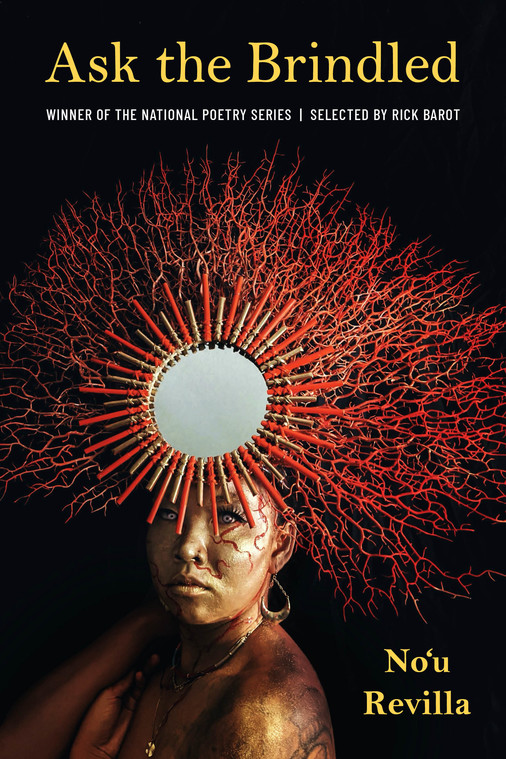Outside a door in east Maui, a brindled dog sits. No cars drive the dirt road.No child appears with food to share or ask for. There is only inside, today.A telephone cries, and to each caller, a grandmother chirps, Aloha. God bless you.In a corner bedroom, a girl is kept in bed, surrounded by mosquito nets & womenwho take turns binding her wound. Miles of violence in their eyes, they knowhow to speed through marrow. They know scars & stars, two thingsa woman should never count in relation to her body. The number of names, maybe,wired around her stomach. The number of stomachs opened like doors and not so muchcleaned as cleaned of secrets. Yes, there is something better than the heart. A whirringsent deep in the body. Like a girl in a house. You are finally home.No glorified organ, no heroic heart. Only guts. Viscera. Ask any Hawaiian.Drive the dirt road, follow my grandmother’s voice. She will bless you. My aunties & cousins,their long fingers pinned to the walls, they point the way to a corner bedroom,this poem. My sister is closing the mosquito net. I am pooling in a bed of gauze.New versions of the Bible will use the word “heart.” Ask any of us where it really hurts.Even my grandma, god bless you. Ask the brindled dog guarding my stomach.
Welcome to the gut house
Feature Date
- August 28, 2022
Series
Selected By
Share This Poem
Print This Poem
“Welcome to the gut house” from ASK THE BRINDLED: by No‘u Revilla.
Published by Milkweed Editions on August 09, 2022.
Copyright © 2022 by No‘u Revilla.
All rights reserved.
Reproduced by Poetry Daily with permission.

No‘u Revilla is the author of Ask the Brindled. She is an ʻŌiwi (Native Hawaiian) queer poet and educator. Her work has been featured or is forthcoming in Poetry, Literary Hub, ANMLY, Beloit, the Honolulu Museum of Art, and the Library of Congress. Her latest chapbook, Permission to Make Digging Sounds, was published in Effigies III in 2019, and she has performed throughout Hawaiʻi as well as Canada, Papua New Guinea, and the United Nations. She is an assistant professor at the University of Hawaiʻi-Mānoa, where she teaches creative writing with an emphasis on ʻŌiwi literature, spoken word, and decolonial poetics. Born and raised in Waiʻehu on the island of Maui, she currently lives and loves in the valley of Pālolo on the island of Oʻahu.

Minneapolis, Minnesota
Ask the Brindled, selected by Rick Barot as a winner of the 2021 National Poetry Series, bares everything that breaks between “seed” and “summit” of a life—the body, a people, their language. It is an intergenerational reclamation of the narratives foisted upon Indigenous and queer Hawaiians—and it does not let readers look away.
In this debut collection, No‘u Revilla crafts a lyric landscape brimming with shed skin, water, mo‘o, ma‘i. She grips language like a fistful of wet guts and inks the page red—for desire, for love, for generations of blood spilled by colonizers. She hides knives in her hair “the way my grandmother—not god— / the way my grandmother intended,” and we heed; before her, “we stunned insects dangle.” Wedding the history of the Kingdom of Hawaiʻi with contemporary experiences of queer love and queer grief, Revilla writes toward sovereignty: linguistic, erotic, civic. Through the medium of formal dynamism and the material of ʻŌiwi culture and mythos, this living decolonial text both condemns and creates.
Ask the Brindled is a song from the shattered throat that refuses to be silenced. It is a testament to queer Indigenous women who carry baskets of names and stories, “still sacred.” It is a vow to those yet to come: “the ea of enough is our daughters / our daughters need to believe they are enough.”
Poetry Daily Depends on You
With your support, we make reading the best contemporary poetry a treasured daily experience. Consider a contribution today.



